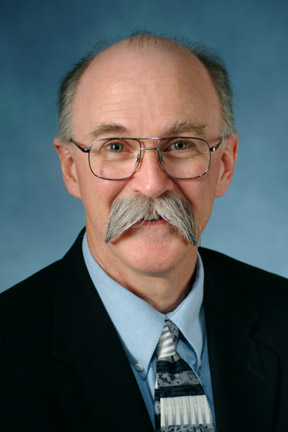On July 23rd, the Planning Commission reviewed the development plan for the second Wal-Mart. The Chair of the Planning Commission stated, "We are the land use commission". With this statement, the Chair asserted that the role of the Planning Commission is very narrow, that of administering zoning ordinances that specify the height, size, and use of buildings. Zoning administration is part of the job of the Planning Commission, but this is far short of all of its full job.
Horizon 2020 is the comprehensive plan for the community. The zoning ordinance and zoning map derive from this plan, but they are not the whole of the plan. The plan calls for the city to monitor the pace of growth of retail space and to protect and preserve the city's existing retail districts.
Maintaining the proper pace of growth is crucial to the success of a city. If the retail space grows too fast, the new space will be occupied, but the surplus will cause older space to become vacant, to deteriorate, and to cause blight. If a city can pace the growth of retail space so that the pace of growth in supply is balanced with the pace of growth in demand, then the retail market can remain healthy.
In the absence of such planning, a city is letting the developers determine the pace of growth of retail supply. History shows that developers are prone to overbuilding. Lawrence is particularly troubled with overbuilding as the supply of space has been growing at three times the pace of growth in retail spending over a period of 12 years. This is a long-term problem. A twelve-year period is not a short-term fluctuation; it is a chronic problem. The harm of this overbuilding is that is causes widespread vacancy in older commercial districts, causing loss in investment, loss in value to surrounding neighborhoods, and lost public investment in revitalization. In Lawrence, the problem is so widespread that the retail oversupply has spread to the office market as dead malls seek out office tenants to avoid total vacancy. This depletes demand from the office market, hurting its capacity to survive.
The Planning Commission chose to ignore these issues. When it narrowly defined itself as the "land use" commission, it took the position that if the land is zoned for commercial space, that the developer, not the community, decides when that land is developed. It is this type of thinking that has generated many of Lawrence's real estate problems. It perpetuates the overbuilding that has resulted in:
1. A blighting level of vacancy in North Lawrence,
2. New retail space downtown unable to attract tenants,
3. Wasted large-scale investment in downtown revitalization with the new parking garage unable to leverage new commercial development,
4. Office usage of retail space in several malls along 23rd Street, and
5. Widespread vacant and deteriorating retail stores.
There is little doubt that adding a second Wal-Mart (or any other store of this scale) will add no new spending to the community. It will only displace retail spending from other stores. Thus, adding this new space will only vacate space elsewhere. The City currently suffers from:
1. Over 300,000 square feet of surplus vacant space (vacant space beyond a normal 5% vacancy rate),
2. Over 800,000 square feet of retail space in the planning process (including the Wal-Mart proposal), and
3. An ability to absorb only about 50,000 square feet per year given the pace of growth of retail spending.
The arithmetic is sobering. If no more space were to be built, it would take 6 years to absorb just the surplus vacant space that exists now. If all of the proposed space is built (Wal-Mart, Bauer Farms, Northgate, and Mercato), it will take an additional 16 years to fill all of this space.
The space may be built, and most of it may be occupied early in its lifespan, but the result will be continued widespread vacancy, deterioration, and blight elsewhere in the community. This can be avoided if the Planning Commission ceases to be narrowly defined zoning administrator and becomes what it is called upon to be, a commission that plans.
